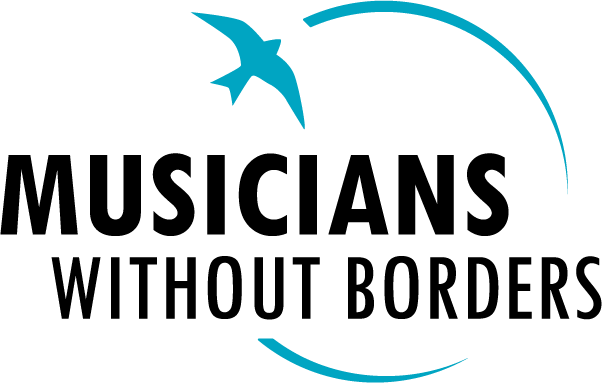We work in Rwanda in partnership with WE-ACTx for Hope, to bring music workshops, lessons, and therapeutic support to young people living in marginalised communities. Over the years we’ve worked with the Bristol-based University of the West of England (UWE) to bring their students out to Rwanda, to work with our music leadership trainers and see our music therapy methodology in action. The students also get the chance to work with the participants themselves and build their skills as music therapists.
This year, two students from UWE joined our team for a placement period. This blog is written by Amelia Caesar-Homden, a final year music therapy student at UWE. Amelia has been a musician for over 20 years, and uses her skills as a performer to bolster her practice.
My name is Amelia and I am currently a third-year trainee music therapist, studying at the University of the West of England in Bristol. I’ve been a musician for over 20 years and it wasn’t until 3 years ago that thanks to my job in the NHS, I learned about music therapy. Ever since I applied for my university course, I have wanted to do my placement internationally but wasn’t sure how or where this would be. When I was told that it could be in Rwanda, I jumped at the chance. Having never been to East Africa but visiting South Africa twice, I was so excited to go.
I have been in Kigali for 6 weeks now and it’s even better than I could have imagined, but it has also come with challenges. When I first arrived, I was taken back by how slow yet productive the pace of life is here and just how friendly and helpful Rwandans are. We did get a few stares initially but that’s mostly because we were new, and it’s just an example of how tight knit the community is here.
We are working with a few different client groups:
- Through WE-ACTx for Hope, an amazing clinic in Kigali, we are running a HIV support group for teenagers and working 1:1
- A support group for women who have experienced violent crimes
- A group for children who are deaf
- 1:1 sessions with children from a SEN school
Personally, the thing that has taken me most by surprise is how impactful music therapy can be when working with children who are deaf or have hearing impairments. Initially, I wasn’t sure what tools we could use, sign language is totally different here and my basic knowledge of Makaton (a communication system that combines verbal speech, sign language, and images) wouldn’t be much help. You might ask, how can we use music if they can’t hear? I wondered the same thing. I had read a little bit about the impact of vibrations but that was pretty much it.
We started off with testing out some body percussion (clapping, clicking) and then we wondered how they would respond if we passed on the role of leader of the group. But how do we communicate that this is what we’re doing? Each week when we arrive they’re playing basketball outside, so if we pretend to throw a ball to the leader will they understand? It worked! Through combining music, rhythm, and gesture, we were able to develop the group activity and involve all the children in a leadership role.
Research has shown that loneliness and social isolation are often felt by those who are deaf or have severe hearing impairments. The motivation behind us using body percussion was to encourage connection between one another and a sense of community. There are many communication barriers throughout the group with not only factors previously mentioned but the language barrier too, it has been a highlight to be part of such a creative and resourceful group.
Whilst it has been an amazing experience so far, it has also come with certain challenges. It’s very difficult when you don’t speak the language and I’m sure it’s exhausting for those who kindly offer to translate for us. I have made it my mission to ask every Rwandan I come into contact with to teach me a word in Kinyarwanda, this has actually proved transferable for music therapy sessions and definitely aids communication. Being able to say ‘Nitwa Amelia’ [my name is Amelia] and ask them how they are seems to go a long way. Each week when we go into WE-ACTx for Hope after the weekend off I like to test out my new words, they do seem to laugh though so maybe I need some more practice! Additionally, as a songwriter improvising with a client, I do find it widens the opportunity for connection, being able to bring in a few words of Kinyarwanda through song and it helps to bridge the communication gap. Luckily, we are surrounded by people who are so patient and kind and make this experience so much easier for us. I have been surprised that working with people here who are non-verbal can often feel easier because the music really does the talking.






